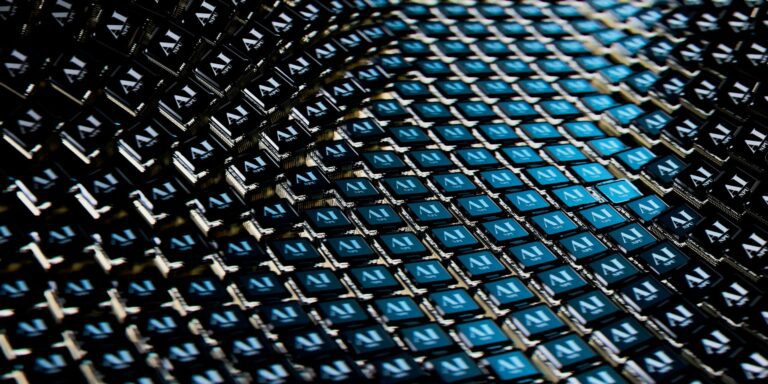Artificial intelligence (AI) has been a transformative force across various industries, from healthcare to entertainment, and now it is making its presence felt in the world of music. AI-driven technologies are already assisting in composing music, curating playlists, and even producing entire songs. But with this rapid rise of machine involvement in the creative process, a central question emerges: Is AI an innovative tool enhancing creativity, or is it a shortcut that risks reducing music to something mechanical and devoid of human touch?
AI in Music Composition: Innovation or Imitation?
AI music composition tools, such as OpenAI’s MuseNet and Google’s Magenta, have made significant strides in demonstrating the potential of machines to create music. These platforms can generate original compositions by analyzing vast datasets of music across genres—from classical symphonies to modern pop tracks—and learning patterns to replicate or remix those styles. For instance, MuseNet can produce intricate classical music or contemporary pop songs, while Magenta’s algorithms excel at creating complex jazz improvisations.
Supporters of AI-generated music argue that this technology offers a new creative frontier, enabling artists to experiment with sounds and compositions that might not have occurred to them otherwise. AI tools can break down creative barriers, inspiring musicians to think outside their traditional methods and explore novel sonic landscapes. They can also serve as a valuable tool for speeding up the music production process, helping musicians get from concept to completion more quickly than ever before.
However, the ability of AI to generate music with such accuracy has also sparked concerns about the potential for homogenization. Critics fear that AI-generated compositions, though sophisticated, may lack the emotional depth and individuality that human composers bring to their work. Machines, they argue, may be adept at analyzing and replicating patterns, but they cannot replicate the lived experiences, cultural references, or emotional insights that fuel authentic artistic creation. As a result, some worry that an over-reliance on AI in music composition could lead to a reduction in the diversity and richness of the music industry, with machine-produced songs becoming formulaic and predictable.
The Question of Authorship and Originality
At the heart of the debate surrounding AI-generated music lies the issue of originality and authorship. Traditionally, music has been a deeply personal form of artistic expression. Musicians and composers draw from their own lives, cultures, and emotions to create pieces that resonate with listeners. A song is often seen as a reflection of the artist’s unique perspective, a combination of technical skill and personal insight. But when a machine can generate music with minimal human input, the line between human creativity and artificial output becomes blurred.
This raises fundamental questions about what it means to be an artist. If a machine can create music that sounds indistinguishable from human-created work, who owns the rights to that music? And can AI truly be considered a creator, or is it simply an advanced tool used by human artists to assist in the process? These questions challenge the very nature of what it means to make music and what the future of the industry will look like as AI continues to evolve.
In the context of the broader music industry, AI’s potential for generating content quickly and cheaply could also disrupt traditional models of songwriting and composition. If music can be produced by machines at scale, how will human musicians, songwriters, and composers adapt? Will their roles shift from creators to curators, overseeing AI-generated music rather than producing it themselves? Some fear that this could lead to a world where music is largely created by algorithms rather than artists, a shift that could fundamentally alter the emotional and cultural significance of the music we consume.
AI as a Collaborative Tool
Despite these concerns, many musicians have chosen to embrace AI, viewing it as a valuable tool rather than a threat. Artists like Taryn Southern and Holly Herndon have integrated AI into their music, using it as a collaborator to enhance their creative process. These musicians argue that AI should be seen as a way to push artistic boundaries and explore new forms of creativity rather than replacing human involvement.
For example, Southern’s 2018 album I Am AI was one of the first major releases to be co-created with AI, blending her vocals with machine-generated compositions. Similarly, Herndon’s album PROTO features AI-driven vocal samples, exploring the intersection of human and machine in music. By integrating AI into their creative process, these artists have demonstrated that AI can augment human creativity, opening up new possibilities for innovation without replacing the essence of artistry.
Moreover, AI’s potential as a creative tool is not limited to musicians who are already pushing boundaries. For many aspiring artists, AI can provide valuable assistance in overcoming creative blocks, finding new sounds, or experimenting with arrangements. By generating a variety of options quickly, AI allows musicians to explore ideas that might not have emerged through traditional methods. This can be particularly useful for independent musicians who may not have access to expensive studios or producers.
The Future of Music in an AI-Driven World
As AI continues to evolve, its role in music production will undoubtedly grow. However, its impact on creativity will depend on how artists choose to use it. For some, AI will be a source of inspiration and collaboration, expanding the potential for musical expression in ways previously thought impossible. For others, it could lead to a world where music is increasingly generated by machines and loses the depth of human emotion that makes it so compelling.
One thing is certain: AI is not going away. As the technology improves and becomes more accessible, it will continue to shape the music industry in ways we can only begin to understand. What remains to be seen is whether AI will serve as a creative breakthrough that enhances human artistry, or whether it will reduce music to a collection of patterns and algorithms, stripping it of the very essence that makes it so powerful.


